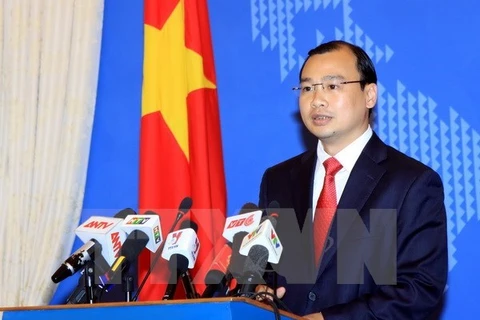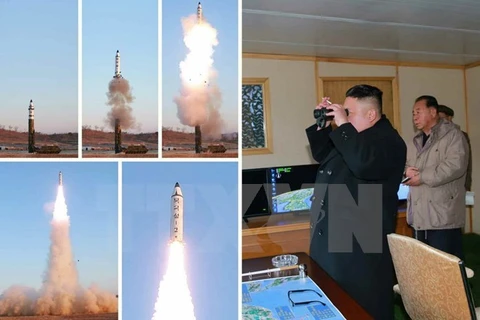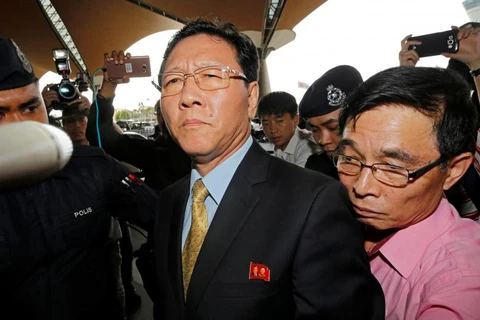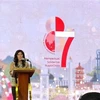 DPRK's Ambassador to Malaysia Kang Chol was deported from Malaysia following the escalating tension in the relationship between the two countries (Source: THX/VNA)
DPRK's Ambassador to Malaysia Kang Chol was deported from Malaysia following the escalating tension in the relationship between the two countries (Source: THX/VNA)Hanoi (VNA) – Malaysian Prime Minister Najib Razak on March 7 said he instructed the country’s police to ban all citizens of the Democratic People’s Republic of Korea (DPRK) from leaving Malaysia after a similar ban imposed by Pyongyang earlier.
The Malaysian PM directed the police force to prevent all DPRK people from leaving the country until Malaysia is ensured about the safety and security of all Malaysians in the DPRK.
He also urged the DPRK to immediately free all Malaysian citizens to avoid any further escalation.
The closure of the Embassy of the DPRK in Malaysia will be discussed on March 10.
Earlier the same day, the DPRK issued an order temporarily forbidding Malaysian citizens to leave the country until the case that occurred in Malaysia is resolved properly.
On March 4, Malaysia deported the DPRK Ambassador to Malaysia Kang Chol while on March 6, the DPRK Ministry of Foreign Affairs announced the deportation of Malaysia’s Ambassador, which is described as “an unwelcomed man.”
The tension between Malaysia and the DPRK revolves the death of a DPRK citizen whose passport name is Kim Chol at an airport in Malaysia.
Malaysia believed the man died of poisoning while the DORK affirmed his death of a heart attack, diabetes and high blood pressure. The DPRK has many times accused Malaysia of issuing inimical conclusions and confirmed it does not accept Kuala Lumpur’s investigation results.-VNA























